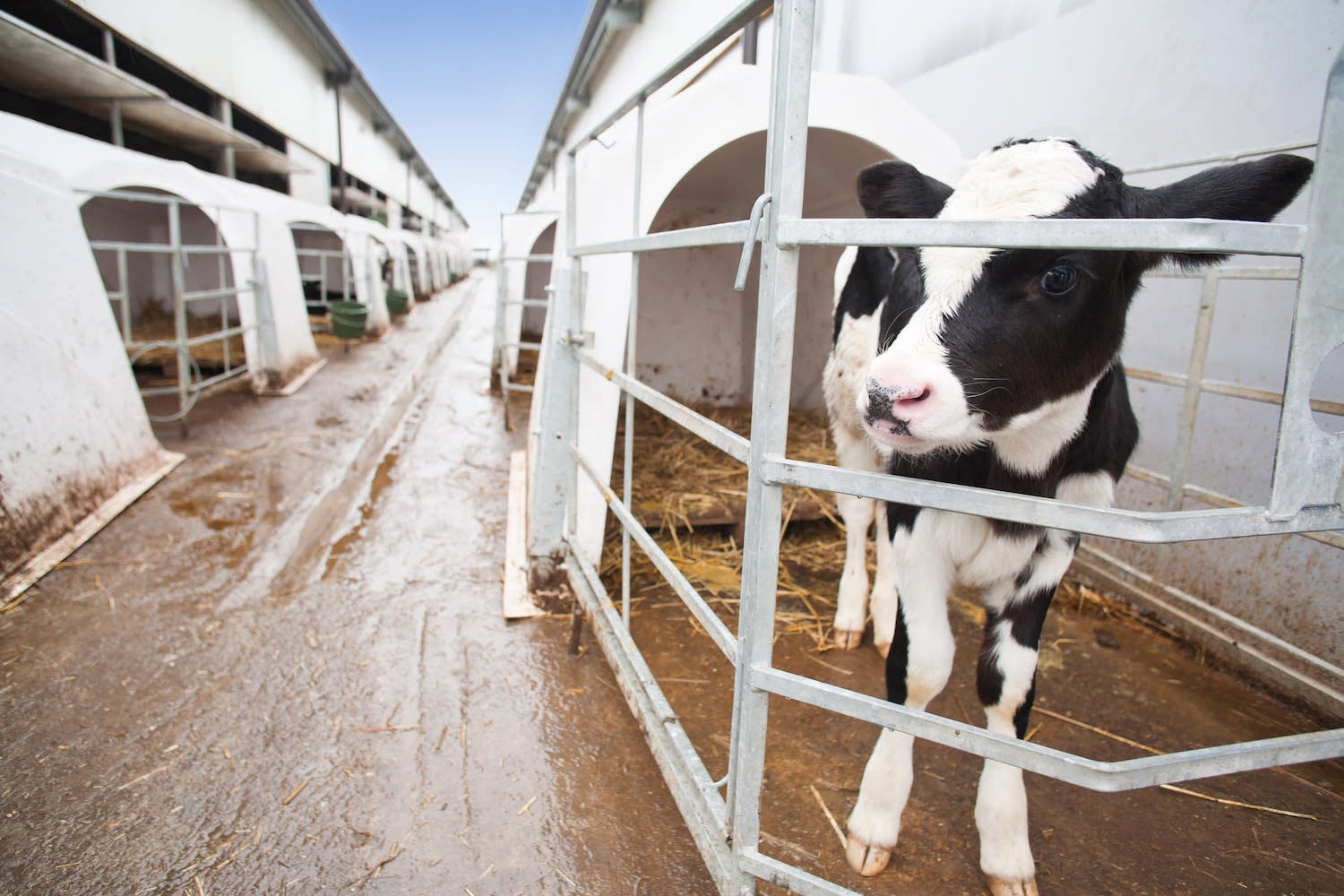- 3 min
Which milk is best? The environmental impact of different types of milk
In western diets, dairy consumption amounts to almost a third of the carbon emissions1, but alternative, plant based types of milk are getting popular and easily available almost anywhere. Surely this is great for the 65% of the world population that is lactose intolerant2, but does it really matter for the environment which type of milk you pick?
The environmental impact of various milk types
When we compare cow’s, almond, rice, soy and oat milk, there is no clear environmental winner, but there is surely one clear loser: cow’s milk. Regarding all major environmental aspects (land use, water use, eutrophication and greenhouse gasses) it is worse than plant based milks:
The environmental impact of a liter of different types of milk3
So if you’re looking for the type of milk with a better environmental footprint, simply go for any plant based milk that you enjoy.
Doesn’t soy cause deforestation?
It’s true that a lot of forest has been cleared to produce soy, but 77% of this soy is used as animal feed, 3,8% is used for industrial purposes, 13,2% as oil for various purposes and just 7% is for direct human consumption, like in tofu and soy milk 4. So soy for human consumption doesn’t require any further deforestation if dairy and meat consumption decreases.
The type of milk is more important than where it comes from
While ideally we source our food locally, the transport of milk from another country has comparatively much less of an environmental impact than what type of milk it is. In other words, it is better for the climate to get almond milk from another country, than cow’s milk from a farm nearby.

Animal welfare
There are many differences in the way milk cows are treated in farms around the world. Some are locked up in tiny spaces for their whole lives, some can run around freely in huge fields of grass. But pain and suffering is almost unavoidable when a farmer is trying to produce milk at a competitive price, even when it’s organic. There are a few reasons for it:
- Cows need to give birth once a year to be able to continuously give milk. Half of the calves are male and not all female calves can be used in the dairy industry, so about 70% will be slaughtered and used for meat and leather, or simply euthanized at birth. Therefore, if you are a vegetarian but consume dairy, you still have a similar effect compared to when you eat meat, just less so.
- Almost all calves are separated from their mother right after birth, because it’s more profitable. Since cows are mammals, the bond between mother and child is psychologically very important. Normally they would spend their first 18 months very closely together. But most calves have to spend their first 6 weeks totally separated from all other cows in a tiny box. Breaking the bond so early has been proven to cause great distress and suffering for them.
- Even in the countries with the best animal welfare regulations around the world, the production of dairy on a large industrial scale leads to an increase in all kinds of diseases for the cows. It’s known that the more milk a cow produces, the more diseases it get’s5. Since the goal of an industrial system is to maximize productivity, that maximized productivity leads to worse animal welfare.
Nutritional differences
Since almost two-thirds of people can’t digest lactose well, plant-based milks can offer great health benefits simply because they are lactose free.
But there are more differences: cow’s milk is higher in calories and contains more protein than plant based milks. For instance cow’s milk contains 3,4 grams of protein per 100 ml, while almond milk contains 0,5 grams. So if milk is an important source of protein for you, you should consider eating more of other types of protein or ask your doctor/dietician for advice.
Cow’s milk also contains a few minerals and vitamins like B12 that plant based milks don’t naturally have. And plant based milks contain some that cow’s milk doesn’t have, like vitamin E in almond milk. However, plant based milks are often fortified with these vitamins and minerals so that you don’t miss out on them.
One thing to watch out for is that some plant based milks are sweetened. But if you are health conscious, there is usually an unsweetened alternative for you to pick.
Taste differences
All plant based milks taste a little different, even if they are the same type. So to see which ones you like best, simply try a few. It could also be that for coffee you like a certain type, but for other purposes you like another type.
The next step in your environmental journey
By letting us plant trees for you in Tanzania to offset your carbon footprint you also get access to the program ‘In harmony with earth’ where you learn even more about how to make most environmentally friendly choices in life. So order your trees now: